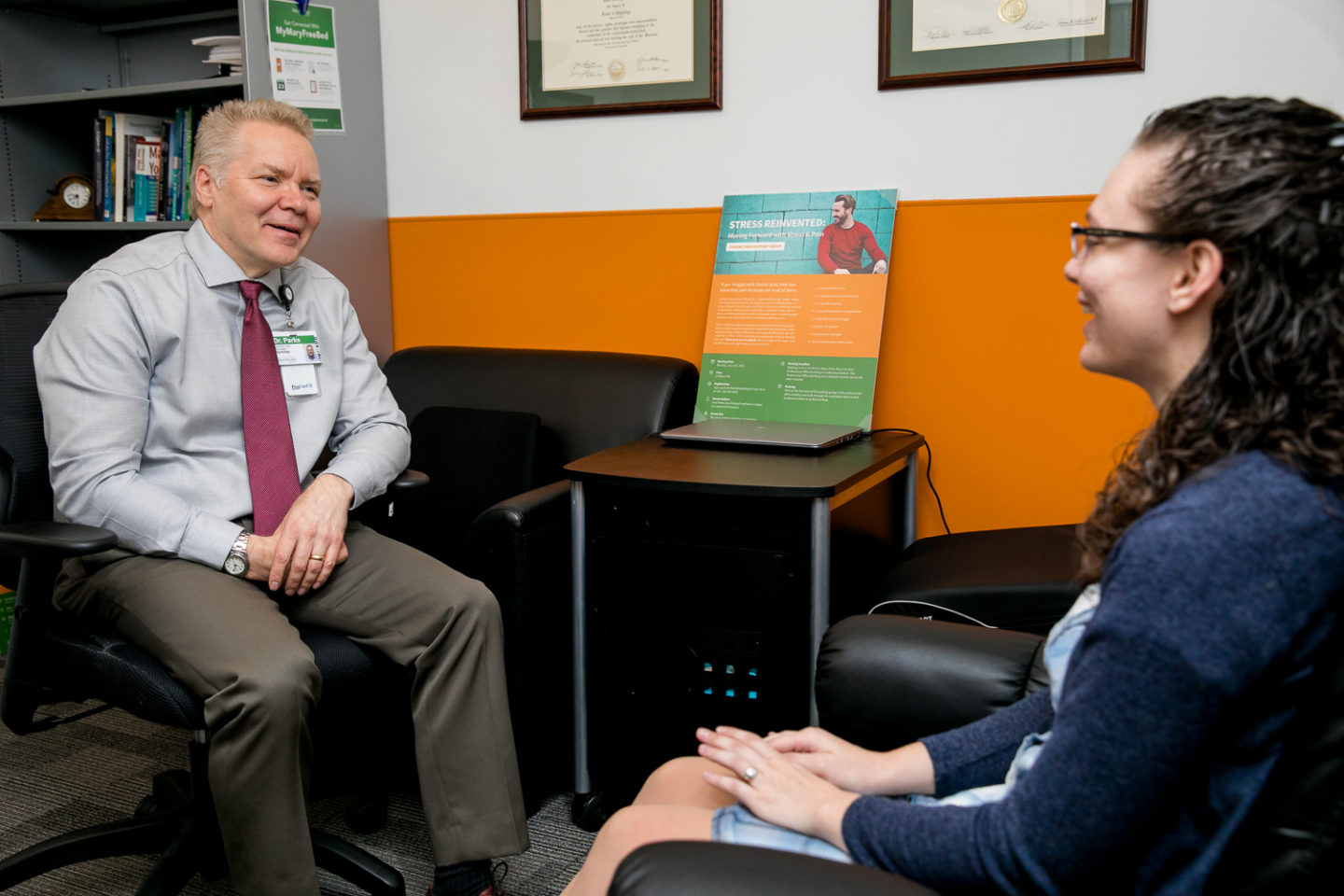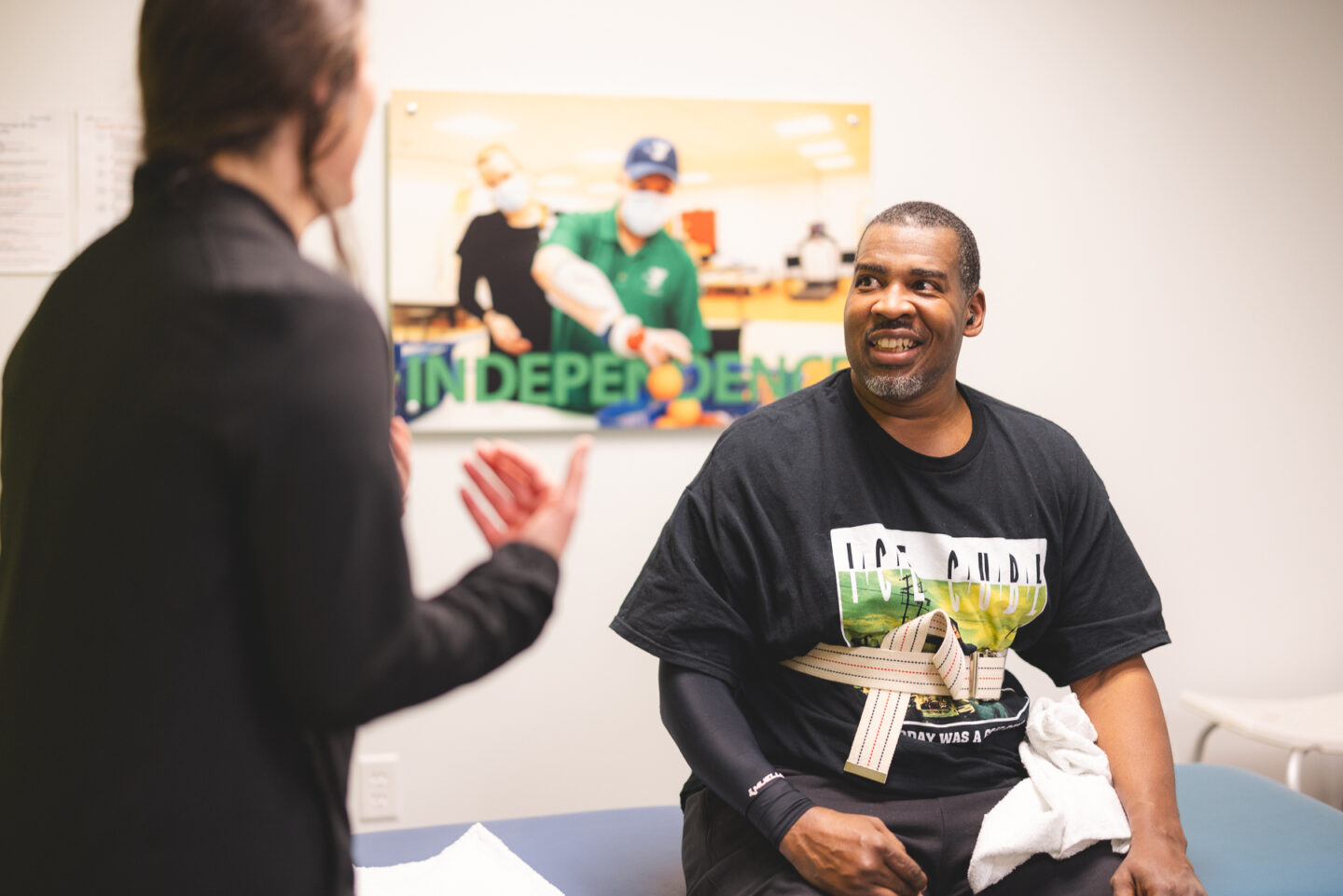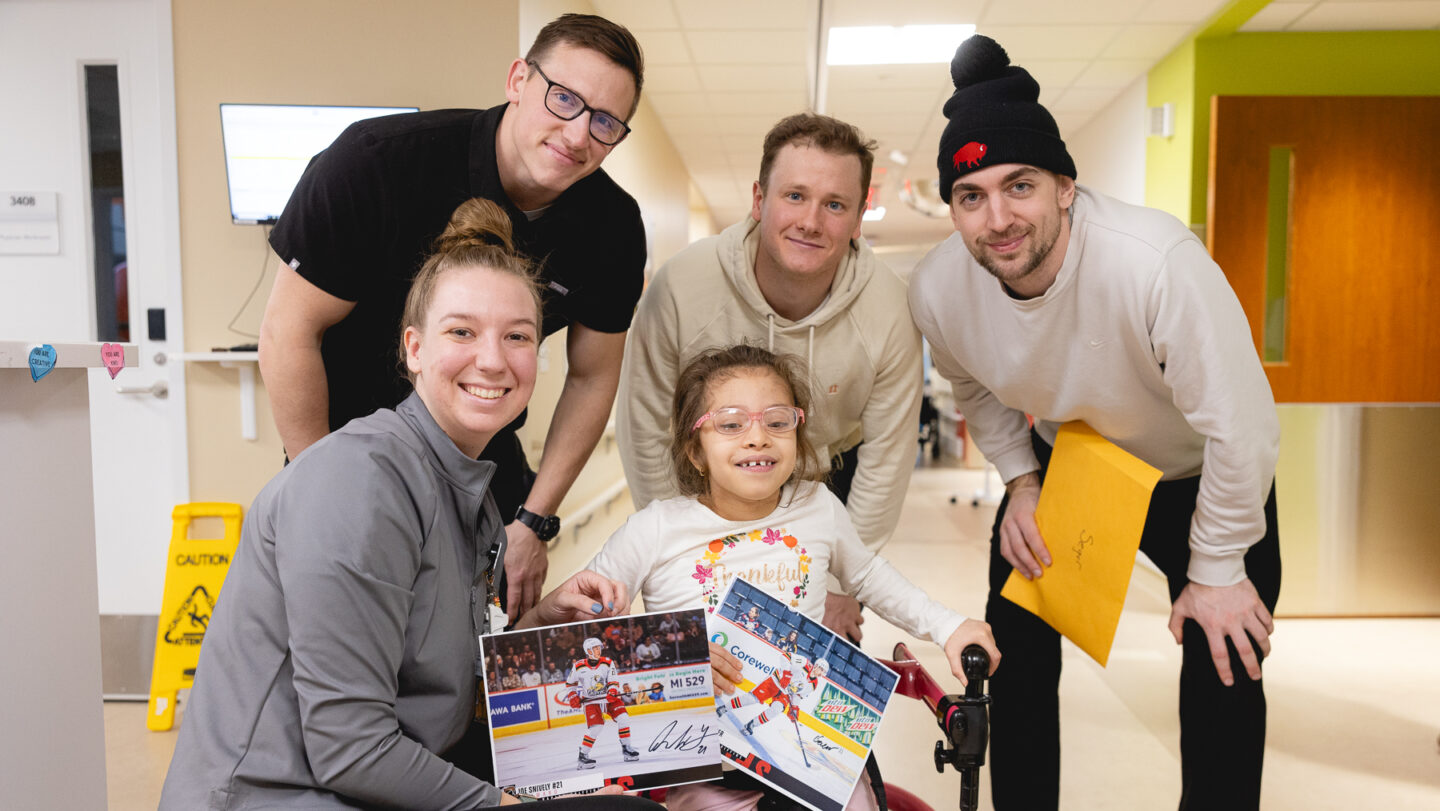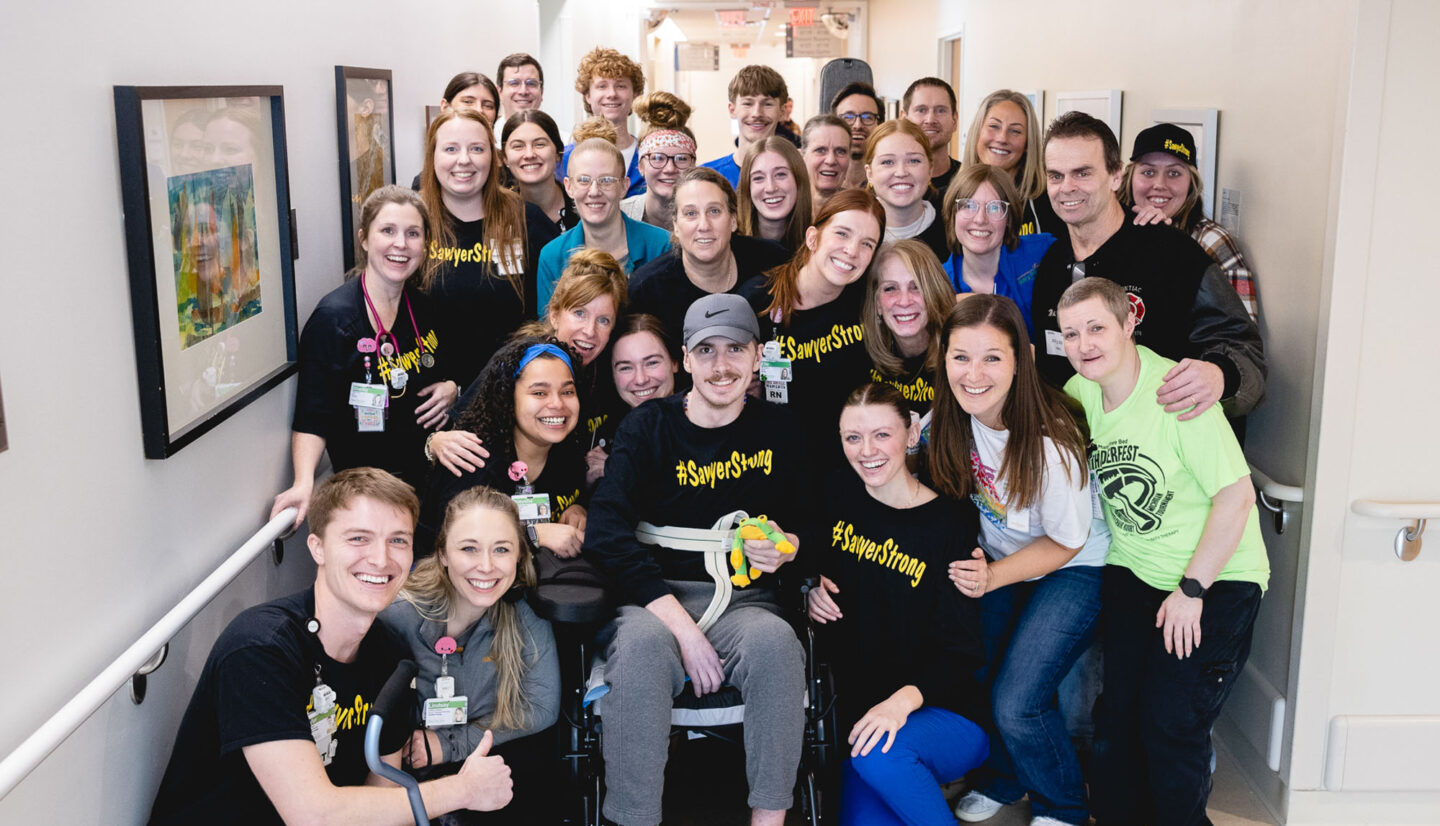Posted on November 5, 2019
Learning how to manage emotions a vital part of chronic pain management
From our experts: Dr. Evan Parks is a clinical psychologist in Mary Free Bed’s Pain Rehabilitation Program. Physical and emotional health are closely linked, and psychology plays a significant role in chronic pain management.
We picture our life moving forward, accomplishing goals and enjoying good relationships. When chronic pain enters that picture, many of the activities that bring satisfaction are removed from our daily experience. Pain sufferers are left to struggle, not only with chronic pain, but with the new reality that comes with the changes, loss and limitations of chronic pain. Facing these emotional challenges directly can help bring meaning and satisfaction back, even when pain persists.
The struggle with emotions
The onset of chronic pain can come on gradually over a period of years or after a serious injury. When faced with a life-changing event such as chronic pain, we often focus on identifying the problem, looking for treatment options and working hard to make things better. Emotions get put on the back burner while we problem-solve.
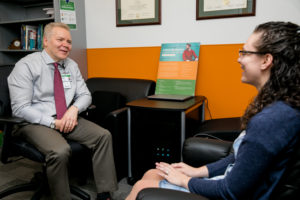
When people begin our Pain Rehabilitation Program, some are uncomfortable about meeting with a psychologist as a regular part of their treatment. It’s not uncommon for a patient to say, “Why do I need to talk with a psychologist? I have real physical pain.” Patients also are concerned about discussing emotions, assuming that talking about their emotions will be the focus of their time with a psychologist. Rather than focus on emotions, the psychologist first educates patients about how chronic pain develops and then teaches skills needed to effectively manage pain.
Tools that help
When meeting with a psychologist, pain patients soon learn they will be given tools to help them understand and deal with their chronic pain. As patients learn new skills, it soon becomes evident that the principles that help them manage chronic pain also aid with loss, sadness, anger, anxiety, fear, helplessness, depression and frustration. I often tell my patients, “Pain never shows up alone — pain shows up with friends. The friends are all the negative emotions that get stirred up with the challenges of living with pain.”
There are four principles we share with patients who struggle with pain and the negative emotions that show up with it:
- We need to identify the difficult thoughts and emotions getting in our way of moving toward what’s important to us — we need to name what’s wrong. While this sounds simple, it can be a challenge to put into words what we are feeling and what thoughts and circumstances are linked to those feelings. We must name emotions to tame emotions.
- We need to disconnect from the negative emotions getting in our way. Whether it’s physical or emotional pain, our go-to strategy is to control and avoid what’s causing our distress. Patients are taught that avoidance and control often make negative emotions worse by creating an internal wrestling match we can’t win. They learn how to let go of their struggle. Allowing our difficult emotions to come and go will help us stay focused on what’s important rather than focusing on what we can’t change.
- The third principle is learning how to stay connected to the present moment. Many of our struggles with emotions have to do with the past or what hasn’t even happened. Staying present helps us stay calm and look at our emotions from another perspective. We need to see that our brain produces a lot of noise and makes up stories about our life, but the noise doesn’t need to be viewed as true or valid.
- Finally, central to pain management and regaining emotional balance is heading in a direction that’s important to us. As we focus all our energy toward the people and activities that really matter, we engage the parts of our brain that generate positive emotion, satisfaction and meaning.
If you struggle with chronic pain and experience the loss, frustration, fear and anxiety that often show up with pain, know that there’s hope. Develop emotional flexibility by learning to let go of the struggle to control your emotions, stay connected to the present moment and keep pressing on toward what is important to you.
Mary Free Bed’s Pain Rehabilitation Program is available in four locations: Grand Rapids, Benzonia, Holland and Kalamazoo. Click here to learn more.



